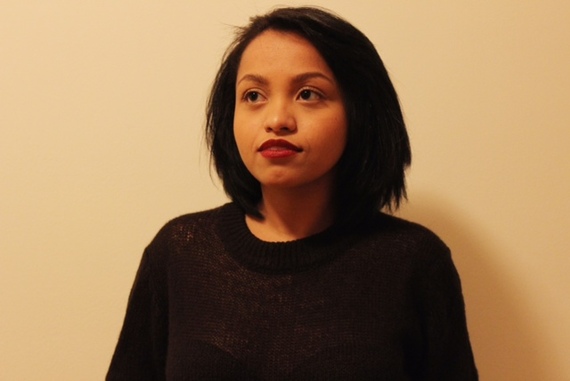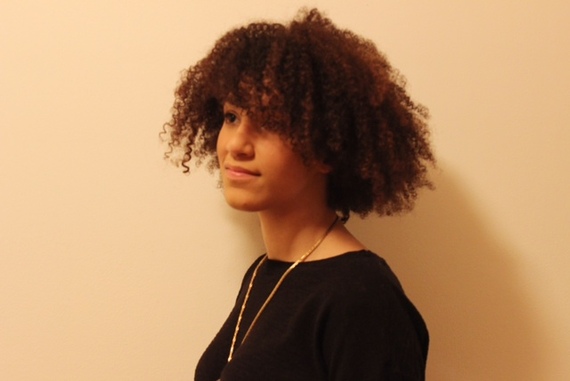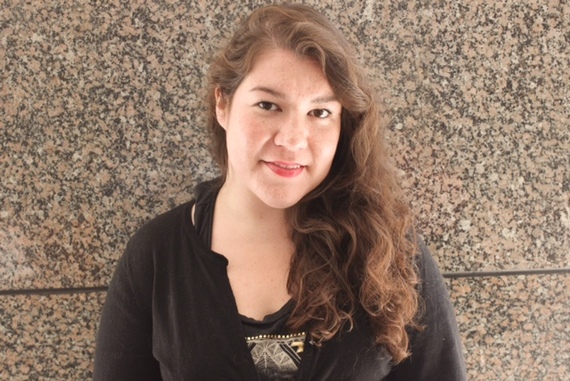Angelica Ruiz was in middle school when she walked into her neighborhood beauty parlor and assertively handed her hair stylist a printed out picture of who she wanted to be once she exited the salon doors. The image at hand was of Ruiz's then role model-millennial superstar and Hollywood it girl Ashlee Simpson-clad in her trademark jet black hair, razor cut layers and fringe bangs.
Instead of leaving the salon rocking a new rock star do however, Ruiz left with an everlasting realization.
"They were like 'Honey your hair is not going to look like that,'" Ruiz retells.
She was explained that her natural roots, curly and voluminous from her Mexican, Black and Italian background, would never accommodate to Simpson's style. Even if the cut was attempted, Angelica would never turn out looking like Ashlee.
"That always kind of stuck with me," said Ruiz. "That, that is not who I am, that I'm a different person and I can't want to look like [that]."
There are over 50 million people who identify as descending from Latino origin in the United States, according to the Pew Research Center's 2010 Census.
Over half of that amount is made up of Latina women like Ruiz. Unlike the United State's Census Bureau however, Ruiz and like-minded mixed Latinas like her, don't feel as if they are quite so easily categorized through society's eyes.
Society's perception of a Latina, according to freelance artist Kiana Englehaupt, 21, is blonde and buxom.
"[They think] Sofia Vergara. They think Eva Mendes. They think JLo. They think, you know, all these girls that are very, very light, basically look white and have an accent. And a lot of times [others] and I get dismissed as Latina because we're not immediately identifiable."
Englehaupt, whom is Puerto Rican, Black, German and Polish, always related to her Latina identity even if those around her could not quite connect the dots due to her lighter skin combined with her rambunctiously curly head of hair.
"My hair was always such a source of dread for me. People would always like pulling my hair asking, 'Why don't you have bangs? Why don't you look this? Why don't you wear your hair down? Why don't you do this?' you know from all the other little girls and I'm sitting here looking around like 'What's wrong with me?'" said Englehaupt.
The cultural disconnection is not solely felt through only darker skinned Latinas however.
For Cuban-American dance instructor Michelle Rodriguez, 20, her fairer complexion separates her from feeling a part of the Latino community.
"Most times people think I'm some sort of Caucasian-European, and it causes people to look at me differently," said Rodriguez.
"I've come across Hispanics who don't consider me Latina and shun me for not being darker skinned. So at times my skin has made me feel disconnected with my Hispanic community, yet has allowed others to accept me but [only] through a misconception of my ethnicity."
For journalist Nyki Salinas-Duda, 25, who writes almost exclusively about Latin America and it's corresponding social and cultural issues, American society's misperception of Latinas is unquestionable. When asked to describe America's viewpoint on Hispanic women, she responds with a mere eye roll and a laugh, but soon after settles her smile to discuss the subject at hand.
"Right now it's such a hard time to be a person of color," said Salinas-Duda. Similar to Rodriguez, she also feels as if she retains special societal privileges because of her complexion. Salinas-Duda, who is the daughter of a Mexican mother and German and Polish father, refuses to allow her light hair and freckled face to camouflage her culture.
"If you choose to pass as white, you're part of the problem," she adds.
Latinas in a sense, are valued and upheld in parts, whether they're being regarded for their hair, face or body. The overarching stigma that follows Latinas everywhere is the society assigned responsibility of being sexy.
"Men either treat [latinas] as exotic or too brown to talk to-too indigenous looking or too whatever to be sexually attractive. There's a spectrum [of latinas] and society is such a generalist about it. If you're Latina and you're not sexual or overtly sexual then what purpose do you serve?"
According to Kiana Englehaupt though, the days of perceived personalities and sexual stereotypes for Latinas are slowly but surely disappearing due to mixed heritages resulting in ambiguous individuals within the world's Latina population.
"As human beings, the easiest way for us to figure out something about people is to categorize them," said Engelhaupt. "Whether it's how they dress or how they look or their skin color-it helps you know what this person's background is or what they're interested in or what to say or what not to say in front of them, and with so many people being mixed now people are having a hard time categorizing."
"Being able to identify with so many different people simultaneously," Englehaupt said, however, is what makes living such a daily heterogeneous life so rewarding.



